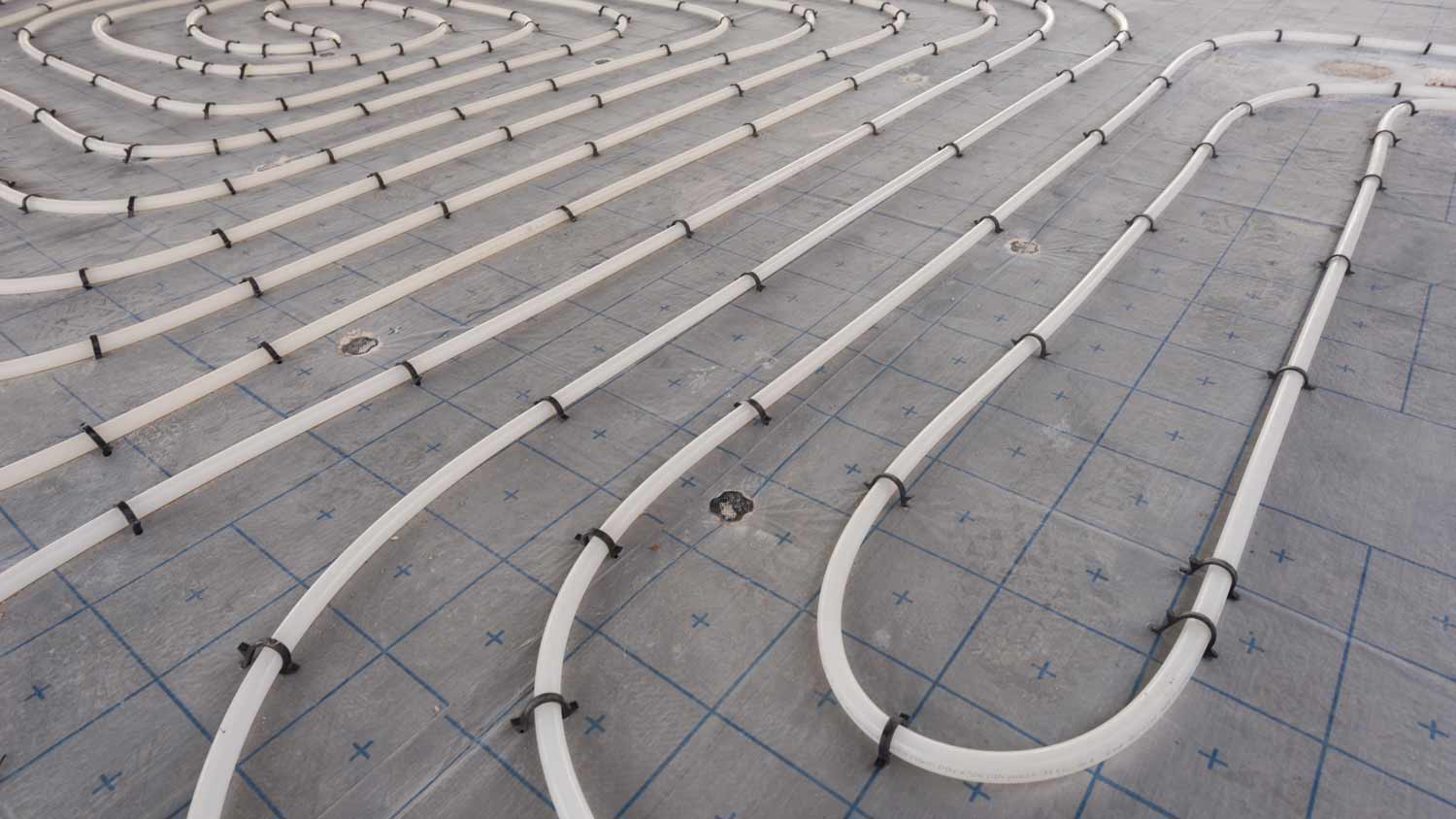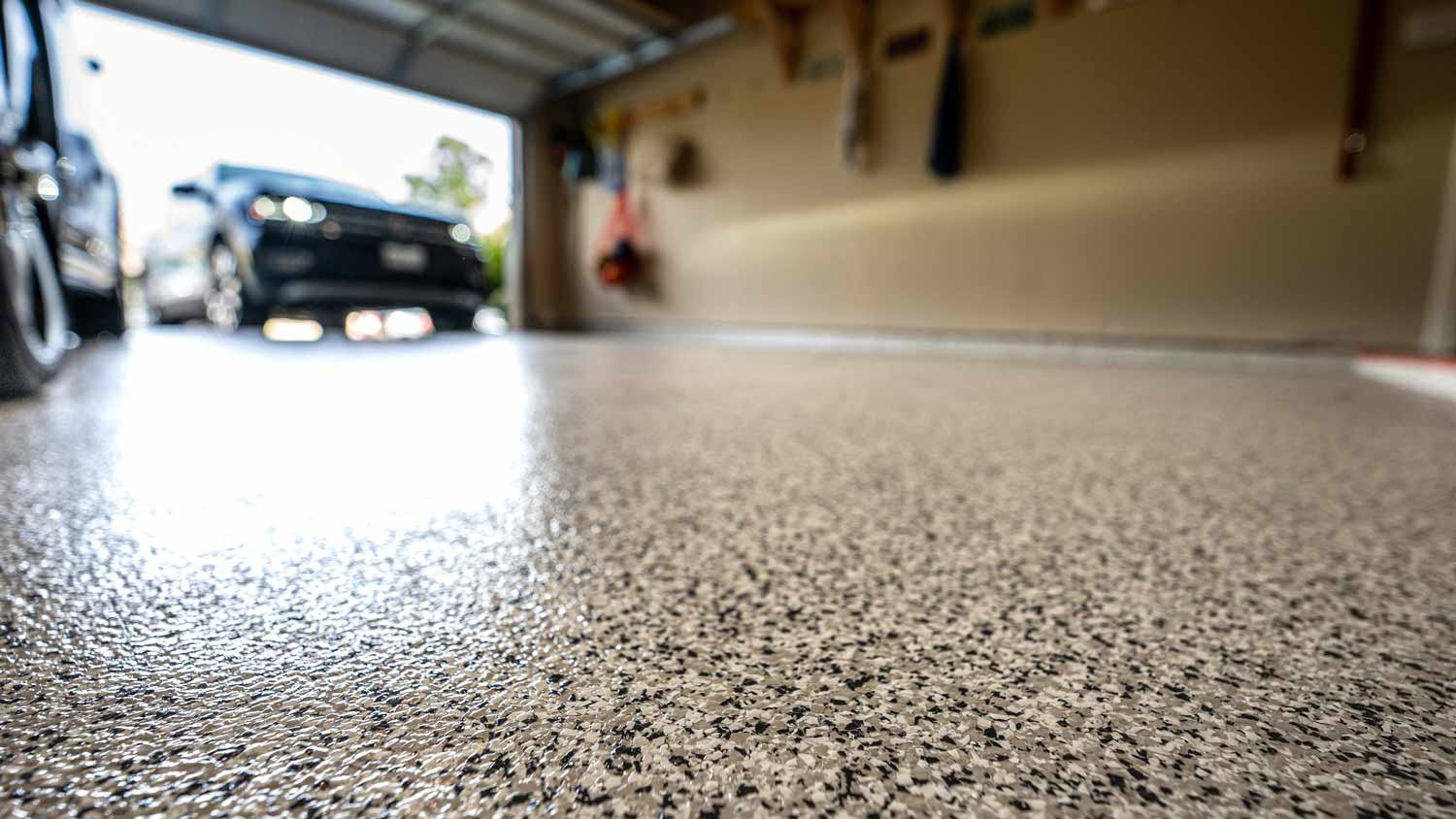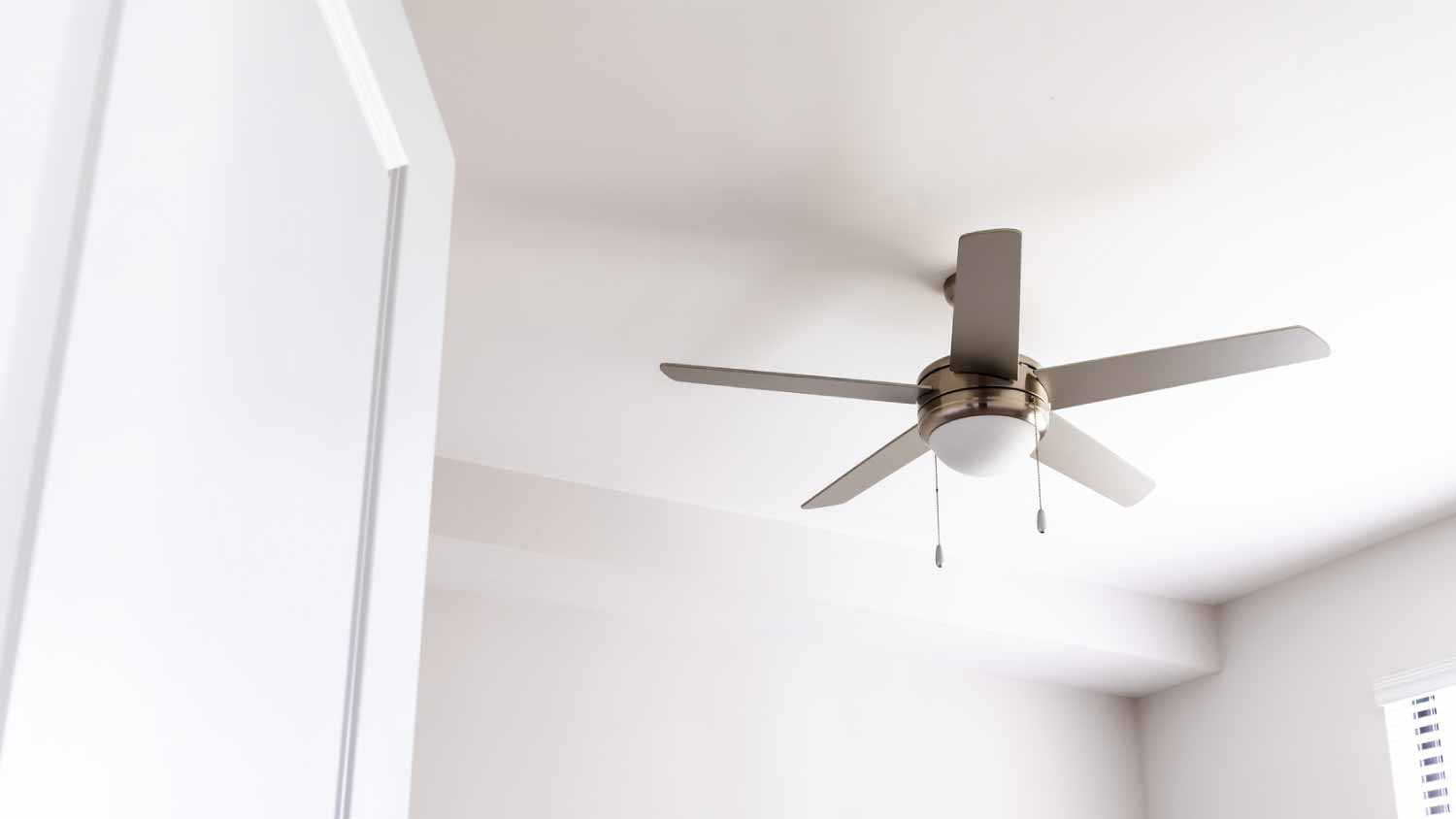Geothermal Heating and Cooling Garage Floors: What to Know
Harness the earth’s natural processes to keep your garage comfortable


Geothermal heating and cooling uses the earth’s naturally consistent temperatures to heat or cool a space.
Geothermal systems are extremely energy efficient, but they come with a steep upfront cost.
Geothermal radiant floor heating costs around $4 to $12 per square foot.
Whether you’re working on cars, building a gym, or converting your garage into an alternative living space, installing geothermal heating and cooling into your garage floor can be a game-changer. While there are several options for radiant flooring, geothermal systems are gaining popularity for their energy efficiency and environmental benefits. Here’s what you need to know about installing a geothermal heating and cooling garage floor system.
What Is Geothermal Heating and Cooling?

Before we look at geothermal radiant floor heating, what is a geothermal heat pump? Also known as a geothermal pump or ground source heat pump, a geothermal heat pump is an advanced and energy-efficient HVAC system that uses the earth's natural heat to control indoor temperatures. Unlike conventional heating and cooling systems that depend on fossil fuels or electricity, geothermal pumps take advantage of the earth's stable temperature that lies a few feet below the surface.
A geothermal heat pump in floor heating uses a network of pipes beneath the ground called a ground loop. This loop circulates warm liquid through these pipes embedded in the floor, providing even and comfortable heat throughout the space. For cooling, the loop circulates cool liquid.
Can You Install Geothermal Heating and Cooling in a Garage Floor?
Yes, it’s possible to install a geothermal radiant heating and cooling system in your garage floor. For a garage, the geothermal pipes are typically installed beneath the concrete slab. Then, the heated or cooled liquid flows through the pipes, transferring warmth or coolness to the floor, which then radiates into the garage space. You’ll need to consult a local geothermal expert to determine how to install this type of system in your home garage.
How Much Does a Geothermal Heating System Cost?
Geothermal radiant floor heating costs around $4 to $12 per square foot on average, with whole-home prices averaging between $9,500 to $27,000. If you’re only adding geothermal heating and cooling to a garage floor, costs will be lower, but there are many factors that can impact your final cost, such as square footage and climate. Get in touch with a professional who installs geothermal heating systems to get the most accurate cost estimate.
DIY vs. Hiring a Pro
Installing a DIY geothermal heat pump in your garage floor isn’t recommended unless you have the proper training and experience. A local geothermal flooring installer will ensure your system is installed safely and efficiently so it lasts for years to come. These professionals can help you determine whether this is a safe and efficient addition to your home garage, and manage the installation and maintenance process from start to finish.
Pros and Cons of Installing a Geothermal Garage Floor

| Pros | Cons |
|---|---|
| Energy efficient | High upfront cost |
| Easy to use | Takes longer to heat up |
| Low maintenance | Requires drilling into flooring |
When comparing a geothermal heat pump versus a regular heat pump, geothermal heat pumps are more energy efficient since they use the earth’s naturally consistent temperature. They’re very simple to use and extremely low maintenance, with options like automatic switches, thermostats, and smart systems to ensure they only run as needed. As heat naturally rises, geothermal heating is a very effective way of heating a room.
As for the cons, price is the main drawback to a geothermal garage floor system. While they cost far less to run than a space heater or radiator, the high upfront cost can be a hindrance. The geothermal radiant heating will also take longer to heat a space. Another con to consider is that installing a geothermal heat pump will require drilling into the floor, increasing costs and cleanup.
What is the ROI on a Geothermal Heating and Cooling Garage Floor?
If you’re limiting your geothermal heating and cooling floor to your garage space, you won’t likely see a major shift in your energy bills. However, if you’re using it as an alternative or a supplement to a space heater, you’ll see a considerable difference right away based on how much energy your space heater uses. Similarly, if you’re constantly purchasing propane to fuel a small heater in your garage, you’ll also see cost savings over time. In either case, it will likely take many years to offset the cost, but you’ll still enjoy the added benefit of a warm or cool floor.
Another thing to consider is a potential increase in your home’s resale value. Homes with geothermal radiant floors are generally valued higher for their energy efficiency. Plus, to the right buyer, an energy-efficient heated and cooled garage floor could be a major selling point.
Ideal Conditions for a Geothermal Heating and Cooling Garage Floor
According to the U.S. Department of Energy, geothermal heat pumps can operate effectively in both hot and cold climates, as the earth maintains a constant underground temperature of between 45° to 75° F depending on the location. With that in mind, those who are in climates that see major temperature fluctuations will get the most use from their geothermal heating and cooling garage floor system.





- Furnace Repair
- Air Conditioning Repair
- HVAC Repairs
- Furnace Installation
- Wood & Pellet Stove Repair
- Dehumidifier & Humidifier Repair
- Heat Pump Companies
- Swamp Cooler Repair
- Wood Stove Services
- HVAC Companies
- Commercial A/C Repair
- Geothermal Installation
- Air Conditioning Installation
- Boiler Repair
- 24 Hour Furnace Repair
- Geothermal Repair
- Heat Pump Repair
- Humidifier Installation
- Thermostat Repair
- Thermostat Installation
- Nest Installation
- Heating & Cooling
- Heating Repair
- Furnace Cleaning
- Furnace Tune-Up
- HVAC Technicians
- Subcontractors
- Furnace Maintenance
- Plumbing & Heating Companies
- Wood Stove Inspection
- Mini Split Installation
- Wall Heater Repair
- Duct Installers










